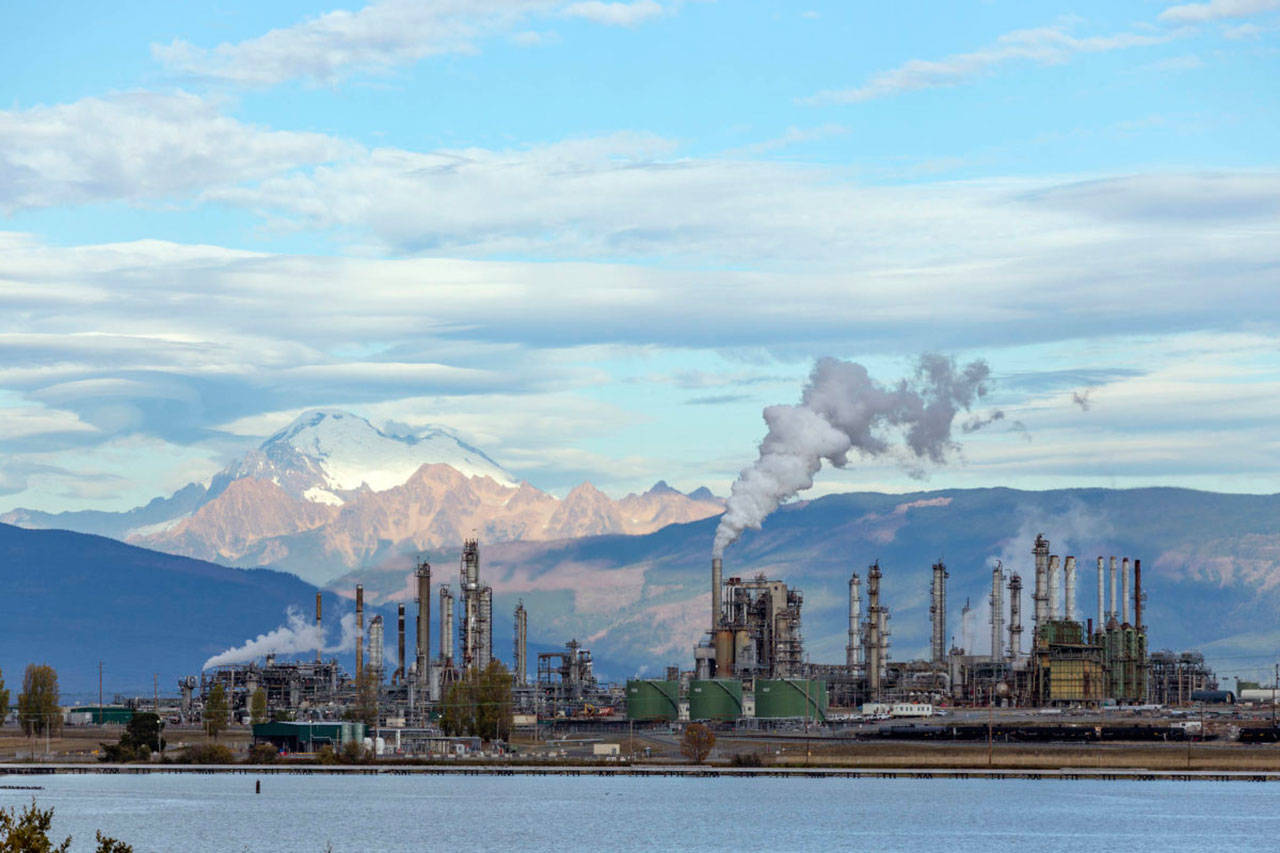A tax on carbon emissions proposed by Governor Jay Inslee has taken a big step forward. On Thursday, the state Senate Energy, Environment, and Technology Committee passed a revised version of Inslee’s carbon tax plan with a 6-4 vote.
In early January, Gov. Inslee proposed a tax of $20 per ton of emitted carbon, with exemptions for certain manufacturers, agricultural industries, and airplane jet fuel.
His plan would have funneled the revenues into clean energy infrastructure projects, forestry, and assistance for low-income families dealing with increased energy costs and individuals displaced from jobs as a result of the tax.
Inslee has pushed a carbon tax several times in recent years, with no success. However, with Democrats now in control of the state Senate, the legislative branch is friendlier to Inslee’s most recent proposal.
The amended substitute version of the Governor’s bill, Senate Bill 6203, brings down Inslee’s proposed tax rate to $10 per ton starting in July, 2019, and increases annually by $2 per ton starting in 2021 until it reaches a cap of $30 per ton. In 2030, the state Department of Commerce will make recommendations to the Legislature on the bill’s impact on carbon reductions and whether to reduce or raise the tax rate.
The original proposal had no cap and an annual 3 percent increase plus adjustments for inflation.
“This is a much more modest proposal,” said Sen. Reuven Carlyle, D-Seattle, chair of the Senate Energy, Environment, and Technology Committee and primary sponsor of the bill.
Some of the bill’s proponents on the committee were ecstatic with its passage out of committee.
“We have never been at this phase, even getting it out of the policy committee,” said Sen. Kevin Ranker, D-Orcas Island, a co-sponsor of the legislation. “This is a monumental step for us to take serious climate action in a thoughtful way that respects and appreciates Washington businesses and Washington jobs.”
In addition to the lowered rate, the substitute version also creates a rural economic development account and prohibits local governments from passing their own taxes on carbon emissions. Another change in the new bill will reduce state car tab fees for vehicle owners whose income is under 200 percent of the federal poverty level.
During the meeting, the committee passed several amendments as well, including an exemption for aluminum refineries and aluminum producers, which was sponsored by Carlyle.
The package still faces obstacles: Senate and House Democratic leadership, while publicly open to the concept of a carbon tax, have not named it as a priority piece of legislation they want to pass during this session.
However, Senate Majority Leader Sharon Nelson, D-Maury Island, said at a Jan. 30 press conference that the carbon tax proposal has “gained a lot of steam since we got into session.”
During the Feb. 1 committee meeting, Sen. Steve Hobbs, D-Lake Stevens, voted against the proposal, arguing that it amounted to a “pretty sizable gas tax increase,” and that the bill doesn’t invest enough in transportation infrastructure.
On the other side of the aisle, House and Senate Republican leadership has been largely opposed to the tax.
Sen. Doug Ericksen, R-Ferndale, who voted against the bill in committee, slammed it as a job killer that would drive manufacturers out of the state and condemned the variety of exemptions written into the legislation as “shocking” and “appalling.”
“What you’re doing is exempting the companies that have the most lobbyists,” he said.
Ericksen had offered an amendment to strip the bill of all its exemptions, which was voted down by the committee.
Meanwhile, environmental advocacy groups are threatening to put a carbon tax initiative before voters on the 2018 fall ballot if the Legislature fails to pass its own proposal. In 2016, voters turned down a carbon tax ballot initiative with about 40 percent in favor.
At a Jan. 30 press conference, Gov. Inslee called upon lawmakers to pass a carbon tax, citing carbon emission reduction targets passed by the Legislature in 2008.
“It has been almost a decade since this Legislature promised people they would take care of their clean air and lungs, and they haven’t done it,” he said. “It is time for the Legislature to do this job. And I expect them to do it.”
The bill now goes to the Senate Ways and Means Committee for further consideration. Carbon tax proponents in the House are waiting for the bill to pass the Senate before advancing any legislation in their own chamber.
This report was produced by the Olympia bureau of the Washington Newspaper Publishers Association.



